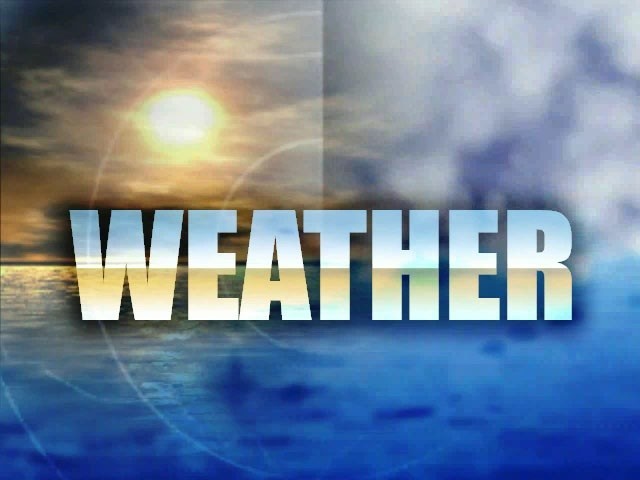WASHINGTON (AP) -- When it comes to climate change, local officials have a message for Washington: Lead or get out of the way.
Local governments have long acted as first responders in emergencies and now are working to plan for sea level rise, floods, hurricanes and other extreme events associated with climate change.
As a presidential task force began its work Tuesday, local officials said they want and need federal support but worried that congressional gridlock and balky bureaucratic rules too often get in the way.
"Government, whether the White House or Congress, is not there to make you whole after a disaster," said Bob Dixson, mayor of Greensburg, Kan., which was leveled by a 2007 tornado.
Federal assistance was crucial after the tornado, which destroyed 95 percent of the town. But federal agencies "are there as a resource. You have to be engaged and involved if you really want your community to thrive afterwards," Dixson said after a meeting of a White House task force on climate preparedness and resilience.
President Barack Obama appointed the task force last month to advise the administration on how to respond to severe storms, wildfires, droughts and other events affected by climate change. All but four of the 26 task force members are Democrats.
The task force meeting occurred as the White House announced that John Podesta, a former chief of staff under President Bill Clinton, will join Obama's inner circle, focusing on energy and climate change issues.
Dixson, a task force member and a Republican, called climate resilience a key part of environmental stewardship. Neither issue should be partisan, he said, nor should it be left to the federal government.
"It has to come from the community level," he said. "It can't be an edict from the Beltway."
Greensburg's population has shrunk from about 1,500 people to 850 since the tornado, but Dixson said the town is thriving, even as it continues to recover.
Federal assistance also was crucial after a massive flood in Colorado in September destroyed nearly 2,000 homes, washed out hundreds of miles of roads and left many small mountain towns completely cut off. But even as cities and towns relied on the National Guard and other federal help in the storm's immediate aftermath, local leaders said the disaster illustrated problems with a one-size-fits-all approach.
In Fort Collins, Colo., for instance, nearly three dozen federal agencies were involved in fixing a road destroyed by a mudslide.
"Half said, `No, it can't be fixed,'" said Fort Collins Mayor Karen Weitkunat. "The other half said, `Go ahead, that's a problem that needs to be resolved.'"
Weitkunat, who serves on the presidential task force, said her message to federal officials is simple: "Get out of the way and we can rebound."
The White House says it backs a local approach to climate change. That's a key reason President Barack Obama appointed the task force, which includes state, local and tribal officials.
"Climate impacts are really local," said Susan Ruffo, deputy associate director of the White House Council on Environmental Quality. "They are about the place where you are, and everyone has to deal with this in a bit of a different way."
In states such as Florida, climate change is "about sea level rise," Ruffo said, while in some Western states the main effects are more frequent wildfires, as well as extreme flooding or drought.
While the task force is looking at federal money spent on roads, bridges, flood control and other projects, most key decisions are local, Ruffo said, citing zoning rules and building codes that could be adapted to account for climate change.
Some local officials said Washington needs to reconsider national policies that encourage people to build in beautiful but vulnerable areas.
"The first thing the feds should do is stop making things worse," said Boulder, Colo., Mayor Matthew Appelbaum. Specifically, by subsidizing flood insurance in low-lying areas and paying billions to fight wildfires that destroy property near national forests, the federal government is encouraging development "in all the wrong places," Appelbaum said at a recent forum on the impacts of climate change.
Even when Congress does act, it faces resistance. A law approved last year lowers federal subsidies for properties in flood zones. The measure, intended to keep the National Flood Insurance Program solvent after an onslaught of disaster-related claims in recent years, is under attack from lawmakers in coastal states worried about sharp insurance rate hikes for some property owners.
The pushback on the flood-insurance law shows the daunting task facing government at all levels, Appelbaum said.
"Maybe we'll never get up the political gumption to make everybody move" from flood- and fire-prone areas, he said, "but we should sure as heck stop encouraging people to increase development in those locations. The feds keep doing it."
Salt Lake City Mayor Ralph Becker, a member of the White House task force, said climate change demands immediate action. "We can't wait for Congress to gets its act together," he said. "We can't wait and we won't wait."
Friday
July 11th, 2025
11:38PM









